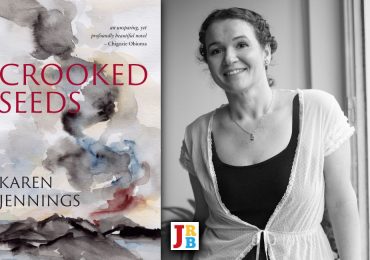British author Maggie O’Farrell has been announced as the winner of this year’s Women’s Prize for Fiction, for her novel Hamnet.
The prize, now in its twenty-fifth year, aims to reward ‘excellence, originality and accessibility in writing by women in English from throughout the world’. It is awarded annually to a woman author of any nationality for the best original full-length novel written in English, and published in the United Kingdom in the preceding year.
The winning author receives £30,000 (about R700,000) and a limited edition bronze figurine called the ‘Bessie’, both anonymously endowed. The winner and the other five shortlisted authors also receive a bespoke leather-bound edition of their novel.
O’Farrell’s Hamnet, set in 1596 and inspired by the life and death of Shakespeare’s only son, was chosen from a heavy-hitting shortlist that included Dominicana by Angie Cruz, Girl, Woman, Other by Bernardine Evaristo, A Thousand Ships by Natalie Haynes, The Mirror and the Light by Hilary Mantel and Weather by Jenny Offill.
The prize was announced via a live digital awards ceremony, owing to the coronavirus pandemic.
2020 Chair of Judges Martha Lane Fox, in London, announced O’Farrell as the winner, while fellow judge Paula Hawkins presented the author with the £30,000 prize and the ‘Bessie’, in her hometown of Edinburgh, Scotland.
Lane Fox said:
‘The euphoria of being in the same room for the final judging meeting was quickly eclipsed by the excitement we all feel about this exceptional winner.
‘Hamnet, while set long ago, like all truly great novels expresses something profound about the human experience that seems both extraordinarily current and at the same time, enduring.’
Joining Martha on the 2020 judging panel were writer and activist Scarlett Curtis, writer and activist, Melanie Eusebe, co-founder of the Black British Business Awards, author and comedian Viv Groskop and Paula Hawkins, international bestselling author.
The inspiration for the Women’s Prize—previously known as the Baileys Women’s Prize for Fiction and then the Orange Prize for Fiction—came about after the 1991 Booker Prize, when none of the six shortlisted books was by a woman, despite roughly sixty per cent of eligible novels published that year being by women authors. Research showed that women’s literary achievements were often not acknowledged by existing major literary prizes.
Last year’s winner was the American author Tayari Jones, for her novel An American Marriage.





